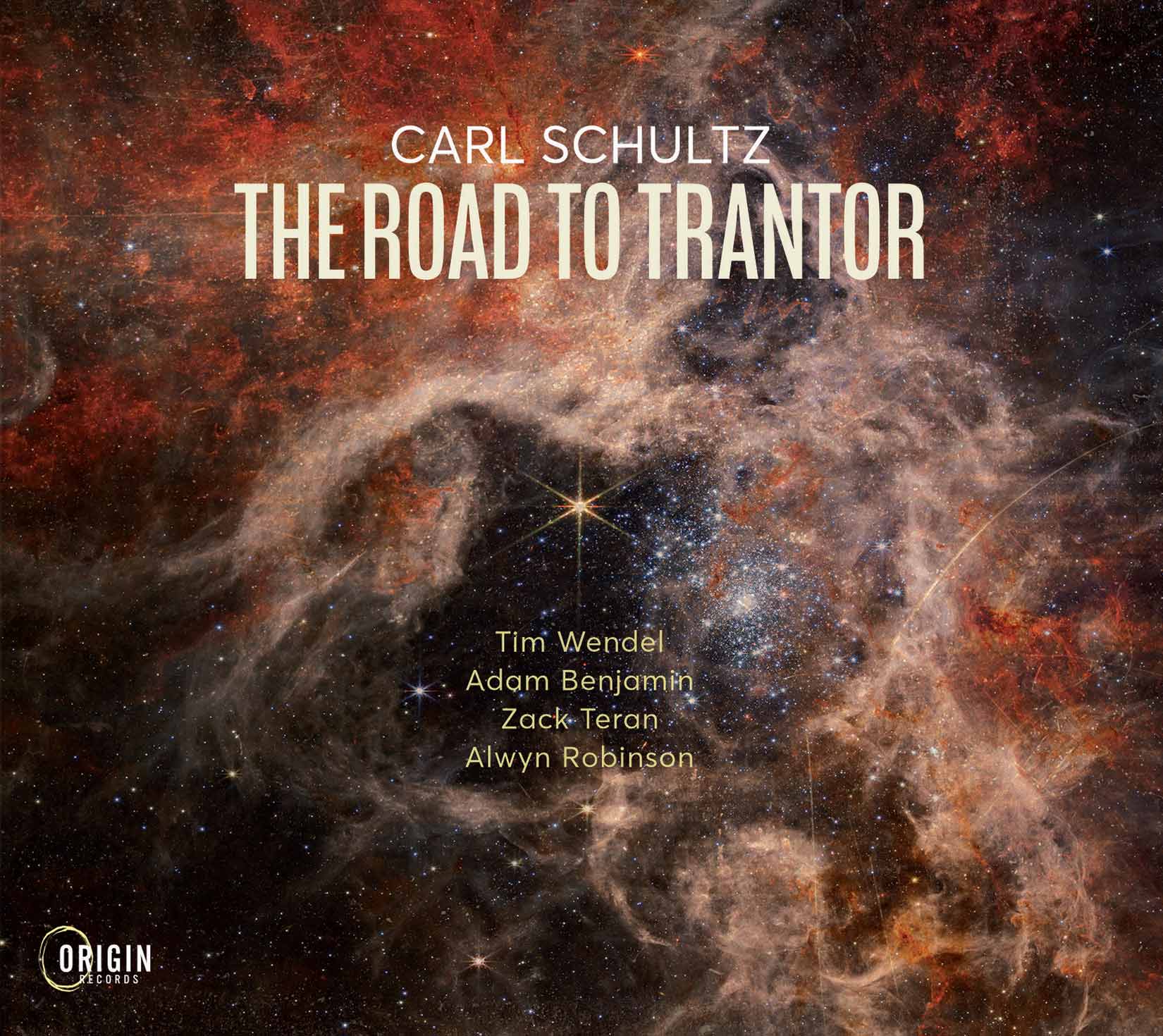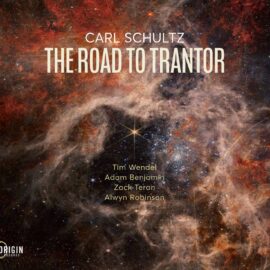| Jazz moderne |

From the very first listen, The Road to Trantor feels like a time machine. For those who lived through the 1970s, the echoes are unmistakable, a return to the lush, exploratory sound world of progressive pop and early fusion, when synthesizers were not just instruments but portals to the future. The keyboard textures here recall a lineage that began with the Mini Moog and continued through the Yamaha DX7 and Roland Juno, instruments that shaped entire decades of sonic identity. A decade from now, we may look back on this recording as marking another such moment, when sound design itself became the message, when the saxophone transformed into a vehicle for pure electronic emotion.
There’s also a resonance in theme. Space and futurism haunted the imagination of the 1970s; Carl Schultz’s Road to Trantor revives that fascination 55 years later, channeling it into a suite that feels both nostalgic and prophetic. The music’s dense layering and cinematic scope blur the listener’s sense of direction. Schultz overloads the frame with rhythm, color, and texture until the boundary between music and film score dissolves. The result is a work that demands total immersion. Each track unfolds like a scene, rich in atmosphere, often disorienting, occasionally transcendent. Silence yields to noise; stillness erupts into turbulence. The contrast can be startling, yet always intentional.
As Schultz composed, he found himself seeing landscapes, not notes. Re-reading classic Hugo Award–winning sci-fi novels, he began to hear soundtracks for stories that didn’t exist. Out of that vision emerged The Road to Trantor, an imaginary soundtrack for an unwritten epic. Its logic is cinematic, not linear; its narrative moves through suggestion rather than statement. For listeners accustomed to traditional forms, it can be a challenging journey. The music slips between conceptual composition, free improvisation, and minimalist repetition, creating a world with no fixed center. You search for a melody to hold onto, a pulse to follow, but often find only texture, tension, and space.
By the fourth track, a sense of air begins to appear, a pause, a horizon, but even there, the heavily processed saxophone pulls the listener into abstraction. The electronics sometimes distort more than they reveal, blurring the line between human breath and machine resonance. It’s as though Schultz wants to dissolve identity itself, to let sound replace the player. This approach can feel alienating, but perhaps that’s the point. In a musical landscape saturated with clean production and emotional clarity, Schultz proposes confusion as an aesthetic stance. His sound is dense, opaque, and deliberately unresolved.
To write meaningfully about such a project, one needs a point of entry, a concept, a narrative, a sonic thread. Yet The Road to Trantor resists all three. It hovers somewhere between exploration and enigma, always moving but never arriving. Like the best of experimental music from the 1970s, the very world that shaped Schultz’s sensibility, it asks more questions than it answers. There are moments that recall the electronic dreamscapes of Brian Eno, the restless energy of early Weather Report, or the digital saxophone experiments of Michael Brecker, but Schultz’s sound world is more solitary, more interior.
In the end, I come away with a curious mix of admiration and frustration. I sense intention, vision, even poetry, but it remains just beyond my reach. Perhaps that’s the essence of this record: an invitation to wander without a map, to experience sound as landscape rather than statement. Some albums you understand immediately; others you must learn to inhabit. The Road to Trantor is a place I haven’t yet found the path into, but one I suspect will haunt me for years to come.
Thierry De Clemensat
Member at Jazz Journalists Association
USA correspondent for Paris-Move and ABS magazine
Editor in chief – Bayou Blue Radio, Bayou Blue News
PARIS-MOVE, October 29th 2025
Follow PARIS-MOVE on X
::::::::::::::::::::::::
Musicians :
Carl Schultz – tenor saxophone, flute
Tim Wendel – guitar
Adam Benjamin – piano, Fender Rhodes
Zack Teran – bass
Alwyn Robinson – drums
Track Listing :
1 Journey 7:10
2 Psychohistory 10:16
3 Caves of Steel 6:24
4 Ecumenopolis 6:57
5 Gladia 10:33
6 Unsettled Worlds 4:18
7 Crystalline Desolation 8:31
8 The Spirit of Adventure 5:22
All music by Carl Schultz (ASCAP)
Produced by Tim Wendel and Carl Schultz
Recorded by Loren Dorland at Mighty Fine Productions, Denver, CO, on September 6th and 7th 2023
Mixed by Tim Wendel
Mastered by Stevin McNamara at Crystal Mountain Studios, Ashland, OR
Cover design & layout by John Bishop

